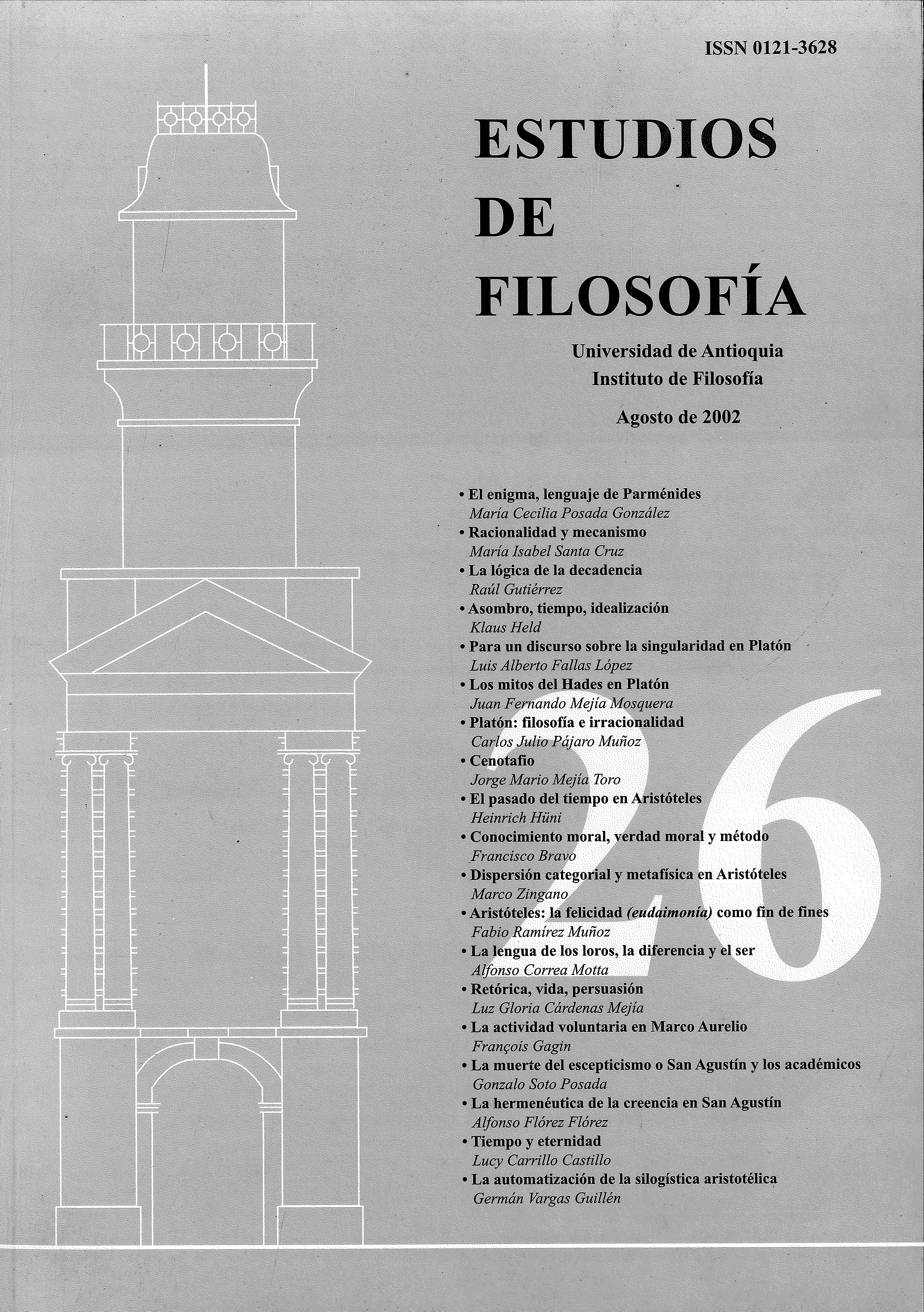Plato: Philosophy and Irrationality
DOI:
https://doi.org/10.17533/udea.ef.14971Keywords:
Plato, irrationality, Eros, madness, beauty, poetry, enthusiasmAbstract
Ion provides an explanation of poetic inspiration granting it characteristics belonging to that which is irrational. However, through the reflection proposed in Symposium, poetry itself starts becoming a means by which a philosopher may reach knowledge of abstract truths. Then, a link is established between inspiration and concept, evidencing a clear compatibility between men's desire to talk to the gods, and the need of a conceptually consistent discourse. But philosophy is assimilated, even more, at the highest level of madness, thus adopting a particular charisma that Plato had formerly attributed to poetry and to the poet with explicit necessity to discredit them. Madness opens in Phaedrus some important perspectives with which we close the chart we have drawn up in our discussion. The Symposium and Phaedrus present as the fundament of ascension to eternal essences Eros, a madness crossed by passion, which has an unquestionable divine nature, and not simply the intellectual curiosity. Platonic discourse leads us in such a way towards a complete philosophical domination, in which nonetheless, poetry and philosophy constitute an indissoluble unit.
Downloads
Downloads
Published
How to Cite
Issue
Section
Categories
License
Copyright (c) 2002 Carlos Julio Pájaro Muñoz

This work is licensed under a Creative Commons Attribution-NonCommercial-ShareAlike 4.0 International License.
Authors who publish with this journal agree to the following terms:
1. The Author retains copyright in the Work, where the term "Work" shall include all digital objects that may result in subsequent electronic publication or distribution.
2. Upon acceptance of the Work, the author shall grant to the Publisher the right of first publication of the Work.
3. The Author shall grant to the Publisher a nonexclusive perpetual right and license to publish, archive, and make accessible the Work in whole or in part in all forms of media now or hereafter known under a Creative Commons Attribution-NoCommercia-ShareAlike (CC BY-NC-SA 4.0), or its equivalent, which, for the avoidance of doubt, allows others to copy, distribute, and transmit the Work under the following conditions: (a) Attribution: Other users must attribute the Work in the manner specified by the author as indicated on the journal Web site;(b) Noncommercial: Other users (including Publisher) may not use this Work for commercial purposes;
4. The Author is able to enter into separate, additional contractual arrangements for the nonexclusive distribution of the journal's published version of the Work (e.g., post it to an institutional repository or publish it in a book), as long as there is provided in the document an acknowledgement of its initial publication in this journal;
5. Authors are permitted, and Estudios de Filosofía promotes, to post online the preprint manuscript of the Work in institutional repositories or on their Websites prior to and during the submission process, as it can lead to productive exchanges, as well as earlier and greater citation of published work (see The Effect of Open Access). Any such posting made before acceptance and publication of the Work is expected be updated upon publication to include a reference to the Estudios de Filosofía's assigned URL to the Article and its final published version in Estudios de Filosofía.















